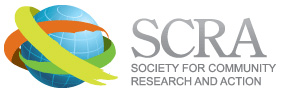Submitted by: Robin Lin Miller
Highlights
Gay and bi-sexual men and trans-women are at an increased risk of contracting HIV.
────
An AIDS-free generation requires the elimination of stigma and discrimination that act as barriers to HIV medical care.
Although many countries have made steady progress toward the acceptance and inclusion of Lesbian, Gay, Bisexual, Transgender, Queer, and Intersex (LGBTQI) citizens, too many countries remain hostile and unaccepting. Globally, seventy-three countries still criminalize homosexuality. Whether codified in law or entrenched in normative beliefs, pervasive stigma and discrimination exacerbates gay and bisexual men’s and transgender women’s HIV risk and impedes their ability to access affirming HIV prevention, testing, and treatment.
“grounding the work in and co-owning it with the community lent the projects’ credibility in the eyes of local health care workers…and the community itself. Inclusion established collective stewardship of the effort to hold the health care system to account for just treatment of LGBTQI people and laid the foundation for a sustained effort to continue to break down the barriers to care.”
Due to stigma and resultant obstacles to prevention and care, a gay or bisexual man is 27 times more likely to acquire HIV than his heterosexual counterpart. Trans-women are at 49 times the risk of cisgender women.
Project ACT was a 20-month demonstration aimed at increasing access to HIV care among gay and bisexual men and transgender women in African and Caribbean countries that are hostile to LGBTQI people. The project employed three advocacy strategies for removing obstacles to HIV care: reducing stigma and discrimination, eliminating violence and threats to security, and challenging policy and legal barriers. The project operated on a partnership model between seven LGBTQI-focused civil-society organizations located in Sub-Saharan Africa and the Caribbean and was led by MPact Global Action for Gay Men’s Health and Rights (MPact), an international human rights advocacy organization based in Oakland, California.
How Did A Community Psychology Perspective Inform Your Work?
Community Psychology emphasizes humility. The field taught me to pay close attention to how the different actors – health care workers, government officials, community members – conceptualized the problems of access to health care in each country and weighed potential solutions. That was very important in being able to recognize my own biases as a person from a rich economy in the global North.
I considered how to collect the data so that the community could share their knowledge in ways that was natural, identify and make their own meaning of outcomes, and express their values about whether a change reflected progress toward or away from rights-based access to care.
As the researcher on the team, I was intervening in the situation by collecting data. I was sensitive to the importance of ensuring that my presence and the data supported community learning and negotiation to help meet the needs of the LGBTQI community.
Methods
MPact commissioned a study of Project ACT’s impact. The study used observations, interviews, focus groups, and document review. Four of the projects (Cameroon, Côte d’Ivoire, Jamaica, Zimbabwe) were followed intensively through routine site visits to gain insight on what is required to conduct successful advocacy in hostile contexts. A post-project peer-to-peer reflection and learning workshop brought together all Project ACT partners as the project concluded. This case study highlights two examples of a community-led monitoring approach using mystery patients to document stigma and discrimination in the provision of health care. The examples in the case study are from Zimbabwe and Cameroon. Mystery patients – also sometimes called mystery shoppers or mystery clients – are people covertly sent into a health care facility to rate the quality of their experiences on a set of pre-determined indicators. In the case study, the mystery patients rated whether they encountered specific types of stigma and discrimination from the moment they entered health care facilities until the moment they departed and took note of who perpetrated acts of stigma and discrimination.
Results
- Mystery patients successfully documented stigma and discrimination in the provision of health care.
- When presented with the findings from the mystery patient data, health care providers, administrators, and government officials agreed to work in collaboration with LGBTQI civil society organizations to develop action plans to reduce stigma and discrimination.
- Action plans included declaring stigma-free zones, supporting ongoing staff training, creating new signage, adapting new waiting room orientation procedures, creating clinics at LGBTQI organizations’ headquarters, and, in Zimbabwe, establishing a LGBTQI community-health care provider quarterly feedback meeting.
- The mystery patient programs each succeeded in enlisting health care workers as allies in the effort to eliminate stigma and discrimination and improve health care access.
What Does This Mean For Research and Evaluation?
As an advocacy tactic, using actual patients as data collectors had multiple advantages, not least of which was its community mobilizing effect. Use of real patients ensured that the data captured the experiences of a highly diverse set of people pursuing a wide range of health needs. It also allowed LGBTQI communities to define what an affirming LGBTQI health care experience included for themselves.
Identifying evaluation strategies that are viable and useful to human rights advocacy is an urgent need, given the predominance of donor-driven accountability-focused monitoring on a narrow set of HIV-related indicators. None of those indicators would have captured the outcomes observed in Project ACT. The evaluation strategies employed to study Project ACT were derived from outcome harvesting and principles-focused evaluation. These strategies proved well-suited to examine the complex and non-linear nature of human rights advocacy and to break down barriers to access to HIV care.
Original Citation: Reducing Stigma and Discrimination in Access to HIV Health Care for Gay and Bisexual Men and Transgender Women Using Mystery Patients in Cameroon and Zimbabwe.
For more information, watch: How Can We Engage Our Communities in Advocacy?



